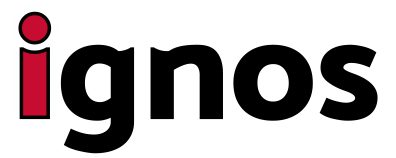In recent years, Spain has made significant progress towards tax digitalization. Electronic invoicing, which was initially optional to simplify administrative processes, has become a fundamental part of tax control and the digital transformation of companies and the self-employed.
In this article we review the main regulatory milestones that have marked this evolution, from its beginnings to the recent generalized obligation to use electronic invoicing in commercial relations.

The beginning: legal validity of electronic invoicing (Law 56/2007)
The first big step was taken with Law 56/2007, which officially established the legal validity of electronic invoices, provided that their authenticity and integrity were guaranteed. Since then, issuing digital invoices has gone from being simply acceptable to being advisable, thanks to the reduction in the use of paper, the savings in administrative costs and the agility in accounting and tax management.
This law allowed many companies to embark on the path towards document digitalization, offering advantages such as a lower risk of document loss, ease of archiving and better accessibility for later consultation.
Mandatory with the Public Administration (Law 25/2013).
In 2013, Spain took another important step by passing Law 25/2013, which made the use of electronic invoicing mandatory in commercial relations with public administrations. Since January 2015, any supplier wishing to work with public bodies has been obliged to issue their invoices electronically, using the official format known as Facturae.

This regulation promoted the creation of the FACe system, a centralized platform where suppliers send their electronic invoices to the Public Administration. This system has facilitated monitoring, accelerated payment to suppliers and strengthened transparency and control of public spending.
The SII and immediacy in tax control (Royal Decree 596/2016).
The Immediate Supply of Information (SII), introduced in 2017 through Royal Decree 596/2016, revolutionized the way VAT-related transactions are reported to the Tax Agency. Under this system, large companies, business groups and other obligors must electronically report their invoices issued and received almost in real time, specifically within a maximum period of four days.

The SII does not replace the traditional invoice, but it considerably improves tax control and fraud prevention by providing fast and updated information to the Tax Administration. In addition, it speeds up tax inspections and facilitates the reconciliation and internal accounting management of member companies.
Veri*factu: completeness and mandatory shipment (Royal Decree 1007/2023)
The next major milestone came with the approval of Royal Decree 1007/2023, which establishes new technical requirements for all computerized billing systems. This decree makes it mandatory to generate unalterable electronic records, digitally signed, with full traceability and event control.
It also introduces the obligation to send these records electronically to the Tax Agency at the time the invoice is issued for those taxpayers who are not part of the SII. Those who are part of the SII will be exempt from this additional remission.
The systems that comply with these new obligations will be formally considered as Veri*factu systems, being able to include in their invoices the legend: “Invoice verifiable in the electronic office of the AEAT”.

It is important to mention that the deadline for the adaptation of computer systems to this new regulation has recently been extended, establishing January 1, 2026 for corporate income taxpayers, and July 1, 2026 for all other taxpayers.
Mandatory electronic invoicing between companies (Crea y Crece Law – Law 18/2022).
Finally, Law 18/2022, known as the Crea y Crece Law, establishes the mandatory use of the electronic invoice in all commercial transactions between companies (B2B). This measure seeks to promote economic digitalization, reduce delinquency, facilitate the control of payments and move towards a more efficient and transparent economy.
The implementation of this obligation will be gradual:
- Companies with a turnover of more than 8 million euros per year will have a period of one year from the publication of the technical regulation.
- The rest of the companies and self-employed will have two years to adapt.
The regulation provides for the use of accepted digital formats such as XML CII, UBL, EDIFACT or Facturae, offering technical variety and flexibility, as well as additional security and traceability guarantees.
Conclusion
Regulatory developments in electronic invoicing represent a great opportunity to accelerate digital transformation and improve business competitiveness in Spain. At Ignos, we are aware of the technical and organizational challenge that these new obligations imply for many companies and freelancers. Therefore, we provide all our experience in technology and digitization to facilitate a simple, safe and efficient adaptation.
With Ignos by your side, adapting to the new electronic invoicing requirements will not only be an obligation fulfilled, but also a strategic opportunity to optimize processes, reduce administrative costs and enhance the digital transformation of your business.



